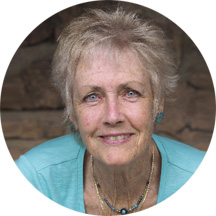This is a continuation of Sally’s story, a woman who found love, lived it and lost. Five years after her dream marriage to Walter ended badly, she was still inconsolable. She came to therapy to find relief.
Friends told her she needed to stop grieving and move on. They hated seeing her in pain. It was clear to them since she was attractive and fun and caring, she could find another partner. Sally felt ashamed when they said all this. Why couldn’t she just go on and find “another marriage”?
She was sick of talking about it when friends asked how she was doing. So she began saying she was “fine” and “No, she hadn’t started dating again—too busy trying to find work.”
In our time together, I asked Sally what she loved about Walter, what she missed the most. At first she described how they met, and the things each of them liked. When asked to be more specific about his traits, habits and values, Sally felt confused. She kept going back to the Walter she fell in love with and not the later years. As we talked, Sally began to realize she no longer loved Walter. She could hardly name anything she missed about him personally, though she cried through several sessions talking about their time together.
So if she didn’t love Walter any more and didn’t long for his return, why was her grief so strong? And why had it lasted for five years? Why was she so stuck?
Sally finally saw it. It wasn’t about Walter, really. It was about the dream, her childhood dream. It was possible. They had lived it. And now her dream was dead.
Death of a dream. Bigger than the person involved, bigger than the years shared, bigger than Sally herself.
We found, Sally and I, that she hadn’t fully accepted the end of her marriage in which her dream resided. That seemed ludicrous considering the years that had passed and all she’d done to get on with her life. When she realized this, she began to really grieve—not just losing Walter but losing her dream. When she acknowledged there was no “replacing it” exactly as she had dreamed it, she began to face her life now.
When big dreams die, there’s no rushing around to replace them. We’re stuck in time and pain. There’s no “Just get another dog…” kind of advice from friends that makes any sense. Nothing consoles.
But Sally was able, gradually, to cradle the dream she lost and to eventually lay it down. It was dead, though she knew it would always be wrapped around her heart. But she wasn’t dead. That also took time and work to realize. And then in order to go on with any meaning in her life, she had to decide to believe that there would be something next, something important, alive and maybe even exciting. She wanted her later years to feel like that old dream made her feel, so she gradually poised herself to receive what showed up. Perhaps a new dream.
Sally learned to live with the death of her dream. She did not get over it. Dreams are too important to forget. Even the ones that die help us remember we can dream again.

